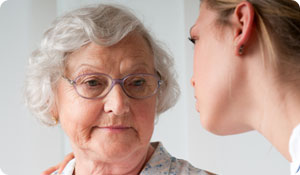
According to an Institute of Medicine (IOM) report, roughly 5.6 to 8 million (1 in 5) older Americans have at least one mental health and substance abuse condition. Depressive disorder and dementia-related behavioral and psychiatric symptoms are the most common.
Furthermore, the oldest Baby Boomers (individuals born between 1946 and 1964) are turning 66 in 2012. This age group now accounts for almost one-third of the U.S. population. Boomers have many risk factors for late onset depression, including widowhood, physical illness, low education attainment, impaired functional status, and heavy alcohol consumption.
These statistics are important. The American Psychological Association expects the number of older adults with mental and behavioral health problems to grow to 15 million by 2030. At this rate, mental health problems will become a social, personal, and an economic crisis, as experts predict a shortage of qualified professionals to care for the growing ranks of depressed older adults.
Depression is not a normal part of aging. In an interview on National Public Radio, Charles Reynolds, MD, who directs a research center for late-life mood disorders, said that many older people are surprisingly resilient to clinical depression. He says that despite losses in old age, most people actively cope with the challenges. Unfortunately, older adults often equate depression with "being crazy," and don't always understand that it's a treatable medical illness, not a moral failing or character flaw.
The IOM report found that physicians typically do not adequately detect nor treat mental health conditions in older adults. Mental health disorders rarely occur apart from physical health problems, and 80 percent of older adults are likely to have at least one chronic health condition.
Left untreated, mental illness in older adults is serious. This age group has a high rate of suicide. Dr. Reynolds says many of these suicides are preventable because they are a product of depression, which is treatable. Short-term talk therapy is very helpful for treating depression, and older adults generally respond to antidepressants, which Dr. Reynolds says can facilitate bereavement by removing barriers to proper grieving.
Functional physicians, such as Mark Hyman, MD, also warn against a "rising tide of broken brains." However, Hyman and his colleagues discourage the general use of antidepressants and encourage adults to fix physical imbalances (nutrition and hormones, for example) that underlie many mental illnesses.
Despite predicted shortages of mental health professionals, the Patient Protection and Affordable Care Act (healthcare reform) includes provisions to establish a national network of centers of excellence for the treatment of depressive disorders.
Sources:
Institute of Medicine. "The Mental Health and Substance Use Workforce for Older Adults: In Whose Hands?" Web. http://www.iom.edu/Reports/2012/The-Mental-Health-and-Substance-Use-Workforce-for-Older-Adults/Report-Brief.aspx
Gross, Terri. "What Science Says About Aging and Depression." NPR. Web. 11 September 2007.
http://www.npr.org/templates/story/story.php?storyId=14321995
American Association for Geriatric Psychiatry. "National Centers Of Excellence To Treat Depression Fact Sheet." Web. 3 March 2011.
Centers for Disease Control. "Depression is Not a Normal Part of Growing Older." Web. 2 May 2012. http://www.cdc.gov/aging/mentalhealth/depression.htm
Hyman, Mark, MD. "The Simple Way to Defeat Depression, Overcome Anxiety and Sharpen Your Mind." Web. 30 August 2010.





